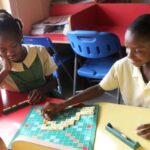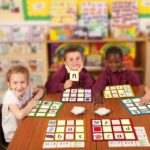It’s a well-established fact that kids learn best through games. This is true for language development as well. Turning the process of learning new words and spelling into a fun and engaging activity is the key to achieving an enjoyable educational experience. Spelling and word-building games are valuable tools for enhancing language skills in children of different ages. Whether at home or in a school setting, these games offer a myriad of benefits, contributing to improved vocabulary, language fluency, cognitive abilities, and even social interaction.
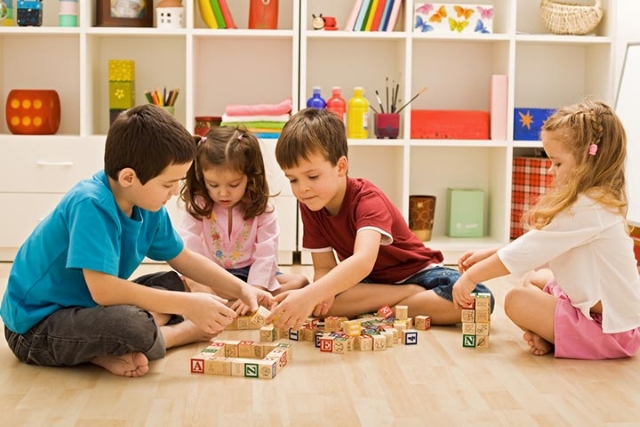
Types of Spelling and Word-Building Games
Spelling Mnemonics
Remembering how to spell more difficult words is a challenge for children, so learning a few clever tricks can come in handy. Mnemonics use memorable phrases to help a child memorise long words or words with silent letters. Learning this practice through a game can later be implemented in other areas of their education.
Spelling Board Games
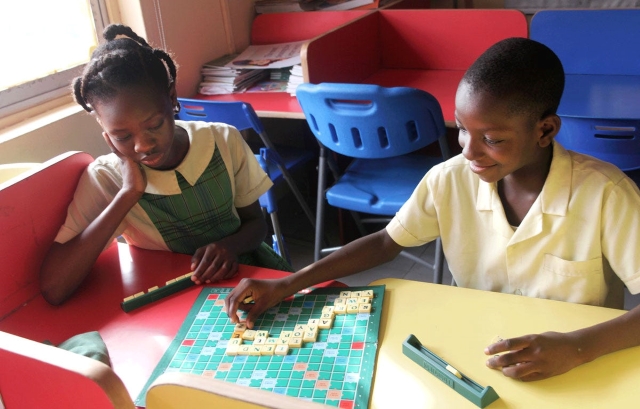
Popular board games like Scrabble, Bananagrams, Anagram Adventures, and plenty of others have been around for years and they are not only fun and educational spelling games, but they also enhance social skills. They improve spelling skills and enrich the vocabulary. These board games promote strategic thinking, lexical creativity, and healthy competition.
Match and Spell
This can be both a guided and an independent word-building game. It is suitable for young kids who are learning the letter sounds and starting to read words, but they also useful for older children who might have difficulties in the initial stages of reading and writing. They need to match the letter cards to the letters shown on the board and build a word, which aids the understanding of how spelling works.
Word Builder
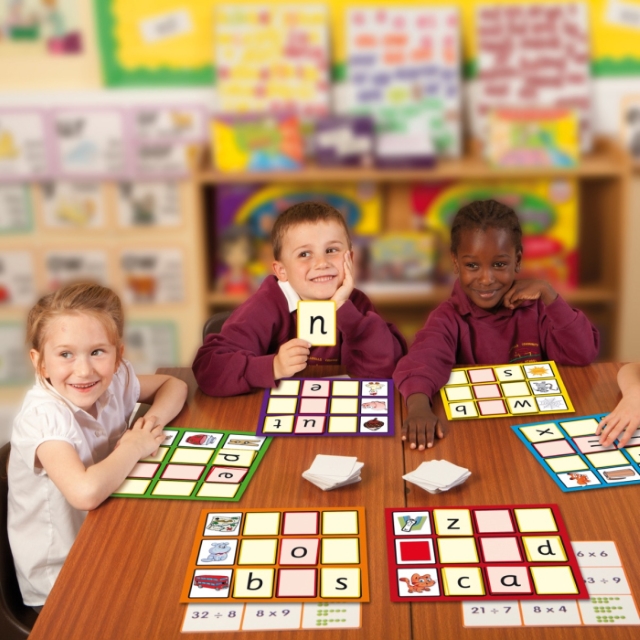
Early readers and children who are just learning how to form a word can have great benefits from word-building games. They are designed to support and encourage beginners to progress in their reading skills as well as enhance pattern recognition, concentration, and vocabulary retention.
Syllable Flips and Blocks
Prefixes, suffixes, root words. They sound like a complex task, but interactive and challenging games like syllable flips and Syllabification, can help students to understand the meaning of words and the process of word formation. This is an exciting way to build new vocabulary and master large words.
What Are the Benefits of Spelling Games?
Improved Vocabulary
Engaging with diverse word forms in games exposes players to a broader vocabulary, expanding their language skills. They learn to recognise patterns, use different combinations and become more confident in using unfamiliar words. The games are created with different difficulty levels, allowing the players to further broaden their vocabulary.
Enhanced Spelling Skills
The repetition and practice inherent in word games contribute to better spelling proficiency and the reinforcement of spelling rules. Once they understand there are patterns, the young players can use the skills in spelling other words without solely relying on their memory.
Cognitive Development
Spelling word games stimulate cognitive functions such as memory, attention to detail, problem-solving, and strategic thinking. They are an excellent way to practice focus and increase attention span, a skill that kids today really need to learn. The games give them a chance to use their creativity and imagination, as well as critical thinking.
Increased Language Fluency
Regular participation in a spelling game contributes to enhanced language fluency, allowing individuals to express themselves more articulately. The use of newly learned words transfers into everyday life unnoticeably. When playing a spelling game, not only do they learn new words, but they also improve their understanding of the language’s structure. This includes grammar rules, sentence structures, and tenses.
Social Interaction

Many interactive spelling games involve multiplayer settings, fostering social interaction, teamwork, and communication skills. The players have to work together to come up with words or solve puzzles. It’s a great way to build relationships and create lasting memories.
Confidence Boost
Successfully solving word challenges in games boosts self-esteem and confidence, encouraging a positive attitude towards learning. The sense of accomplishment, however small, gives children joy and pride, stimulating further progress. Once they feel comfortable in the world of words, they realise they can use these words in other situations without fearing they will make a mistake.
Suitable for Home and School Use
- Home Use: Families can incorporate word games into their leisure time, promoting both entertainment and education. This creates a supportive learning environment at home as well as enjoying a fun time together. Board games take everyone away from the screens and give the family a chance to have a collective experience. Playing card and board games is as much fun for adults as it is for children.
- School Use: Educators often integrate spelling games and other word-building activities into the curriculum to make learning more engaging. These games serve as effective teaching aids for language arts and can be adapted for various grade levels. The interactive elements of the quizzes and games liven up the atmosphere in the classroom, instigating greater interest in participating in the learning process.
Finishing Thoughts
Spelling and word-building games are powerful tools that offer numerous benefits for individuals of all ages, but they are especially useful for the younger population. Whether utilised at home for family fun or integrated into the educational system, these games contribute to improved language skills, cognitive development, and a lifelong love for words. Recognising and embracing the enriching aspects of these games, allows individuals to embark on a journey of linguistic discovery and intellectual growth.

